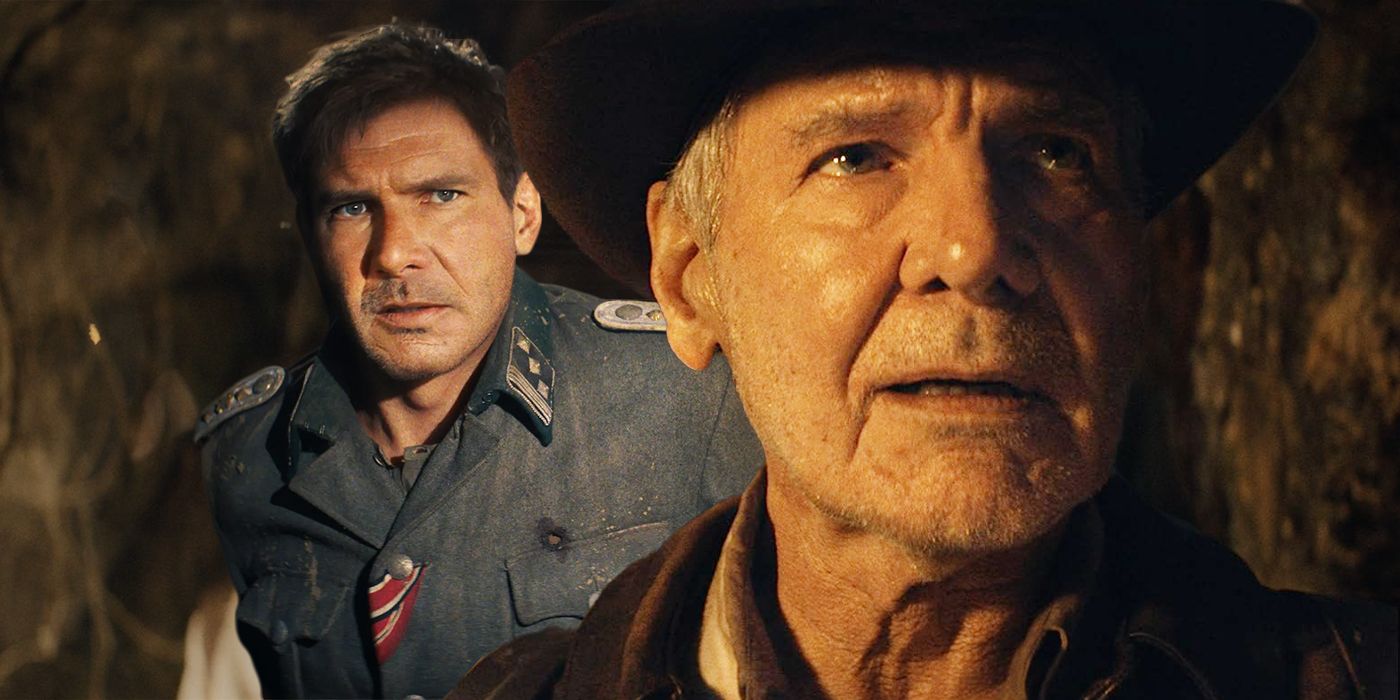
At this point in his career, there isn’t any project Harrison Ford could star in that would detract from his legacy. He is Harrison Ford, the bounty hunter in space and charming adventurer with a whip. That being said, Ford can significantly weaken the legacy of some of his most beloved characters, like Indiana Jones. Indiana Jones and the Dial of Destiny hasn’t ruined the original trilogy any more than Kingdom of the Crystal Skull did, but it does mean that the final few years of Ford’s career won’t be as flawless as they could have been.
Indiana Jones and the Dial of Destiny is a toothless effort from director James Mangold and makes it harder to appreciate the Indiana Jones series as a whole, a trend that is all too common in classic blockbuster franchises like Star Wars, Alien, and Terminator. Ford is right not to run away from the movie and tarnish it, but there’s no escaping that it damages his standing and Indiana Jones’ standing as a timeless hero of the screen. It suggests that Indiana Jones is a franchise of its time and that the Dial of Destiny was unable to recapture a formula that at one time seemed rock-solid gold.
The movie makes the mistake of sitting on the fence, ultimately feeling too new to fit into Indiana Jones and too old school to feel like an evolution of the franchise. Indiana Jones and the Dial of Destiny fails as a legacy sequel because it tries to be too many things at once and leaves Ford out to dry. Why is Indiana Jones and the Dial of Destiny a failure? What does it say about the franchise as a whole? Does it do any damage to Harrison Ford’s legacy? Here’s what you need to know.
‘Indiana Jones and the Dial of Destiny’ Is Somehow Worse than ‘Kingdom of the Crystal Skull’
Indiana Jones and the Dial of Destiny fumbles the potential of a legacy sequel, which, to be fair, is a sentiment that can be aimed at lots of them today. In trying to recapture the magic of Indiana Jones’ classic adventures, it loses the charm of the period they were made in. The movies used to feel like Sunday morning cartoons, but Indiana Jones and the Dial of Destiny is so focused on hitting the recognizable beats that it misses the simplicity of what made them so watchable. There has to be a Nazi villain that feels like the others, but because there’s no escaping Ford’s age, it feels wrong. He isn’t who he was, and trying to make him that is simply a flawed concept that the movie never works around.
The solution is to bring in Phoebe Waller-Bridge, who similarly misunderstands the charm needed in a movie like this. She tries to be the sarcastic figure, but Indiana Jones is more than that. Waller-Bridge feels too modern in the role, like she’s mugging the camera for a clever self-aware laugh. The charm is inherent in the situation, and Harrison Ford worked so well in the previous movies because he was the everyman, buoyed by Spielberg’s blend of historical accuracy and campy sensibility.
Indiana Jones and the Dial of Destiny doesn’t do anything new or use Harrison Ford’s age as an interesting plot point. He’s old and sad now, out of place in his modern world, but kept from returning to it. Instead, everything is just copied and pasted forward without acknowledging that anything has to change in the end.
Does ‘Indiana Jones and the Dial of Destiny’ Hurt the Franchise’s Legacy?
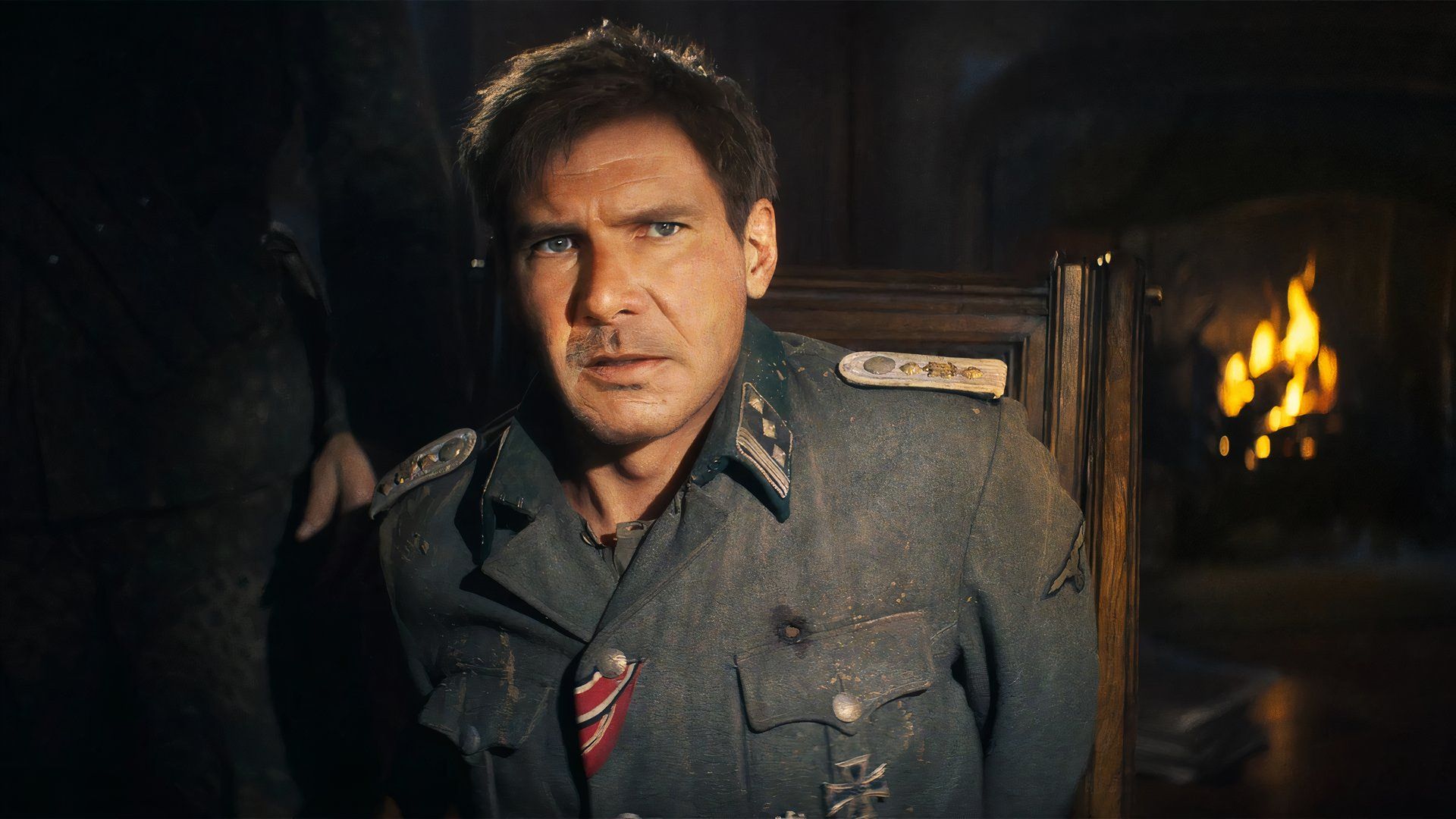
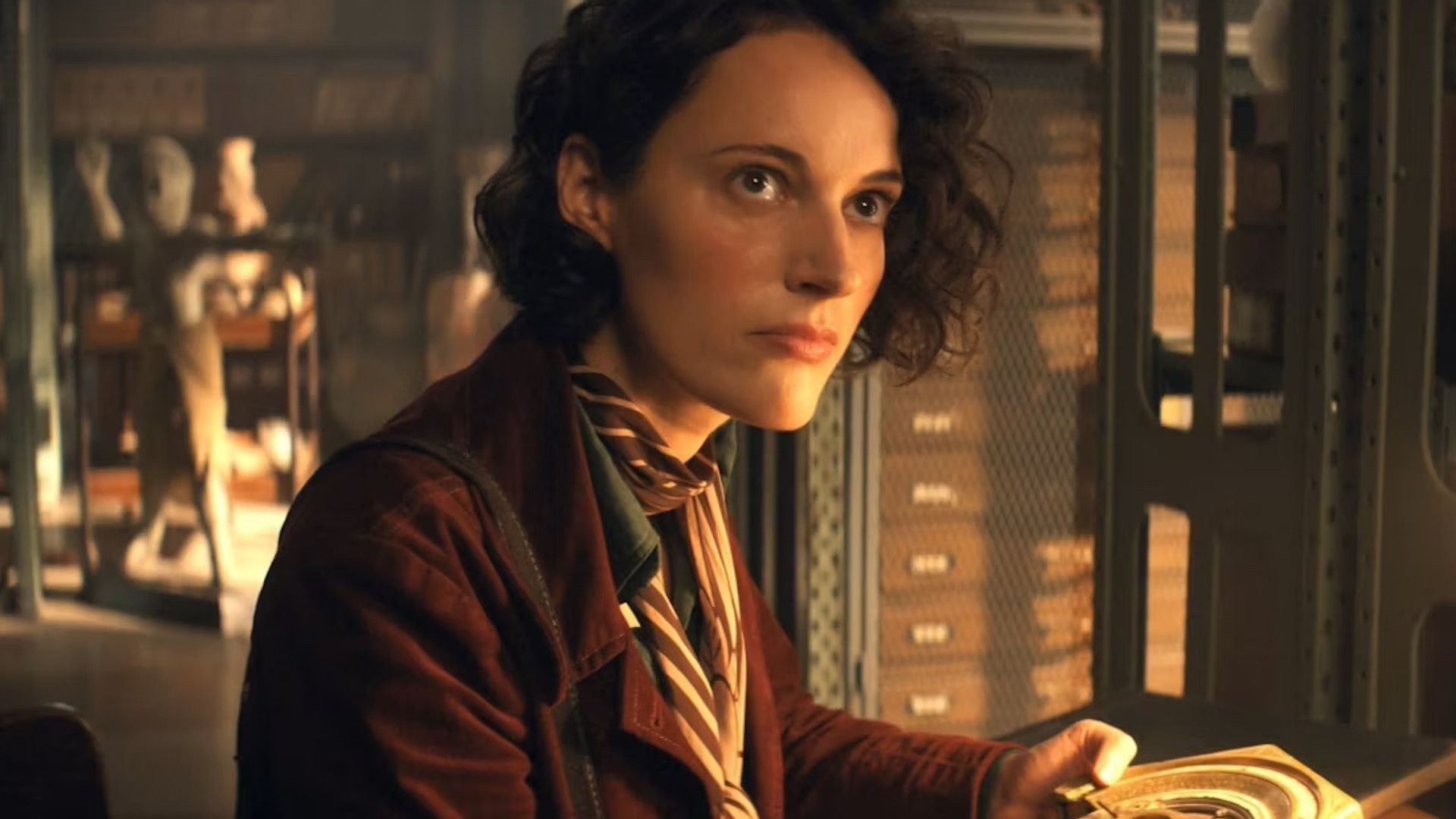

All of this means that fans have to awkwardly separate the original trilogy from the fourth and fifth films. The first three movies are untouchable, but Kingdom of the Crystal Skull and now Dial of Destiny act as bizarre epilogues that take the franchise to new, preposterous heights. They jump the shark, less focused on the trilogy’s blend of fantasy and realistic action and more on set pieces that force the structure to constantly one-up itself. Eventually, the movies land themselves in a series of outlandish moments that feel out of place. Indiana Jones and the Dial of Destiny is the same. The film ticks the boxes of what the audience might expect, without the fantasy elements feeling appropriate or like the characters are even fazed by them.
It always felt like in the trilogy, Indy was reacting to what was happening. He isn’t a slick hero; he’s just trying to survive. Indiana Jones and the Dial of Destiny almost turns the character into a myth, as he is haunted by a face from his past, and none of the events feel naturally occurring. We know that he’s seen it all before. Even in The Last Crusade, when Indiana Jones was challenged, it felt like uncharted territory for him, like he was making it up as he went along.
Indy had a good grasp of the past connected to his quest, yet he hadn’t anticipated the antagonists would counterattack. The Dial of Destiny lies hidden, and due to his advanced age, he finds himself at a distinct disadvantage compared to the rest. However, an unusual layer of protection seems to surround him as no man of his years, not even himself, would typically embark on such a perilous journey.
Where Does This Leave Harrison Ford?
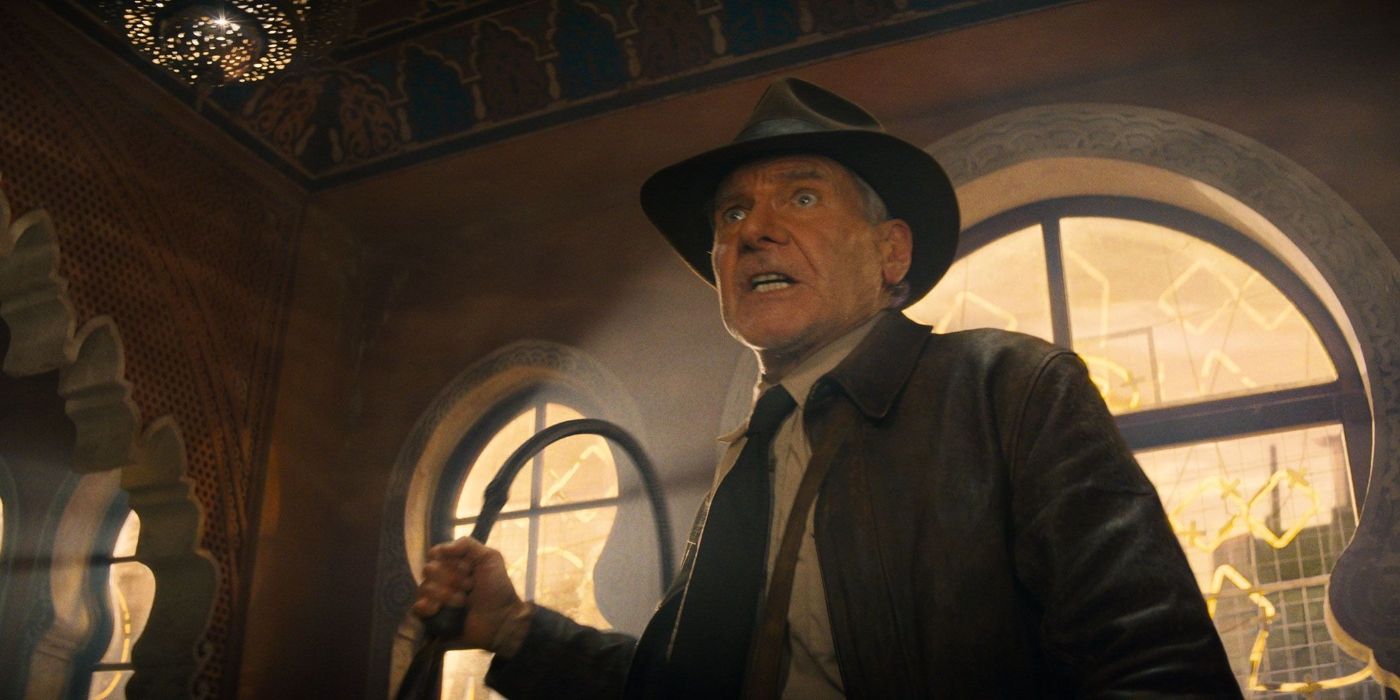
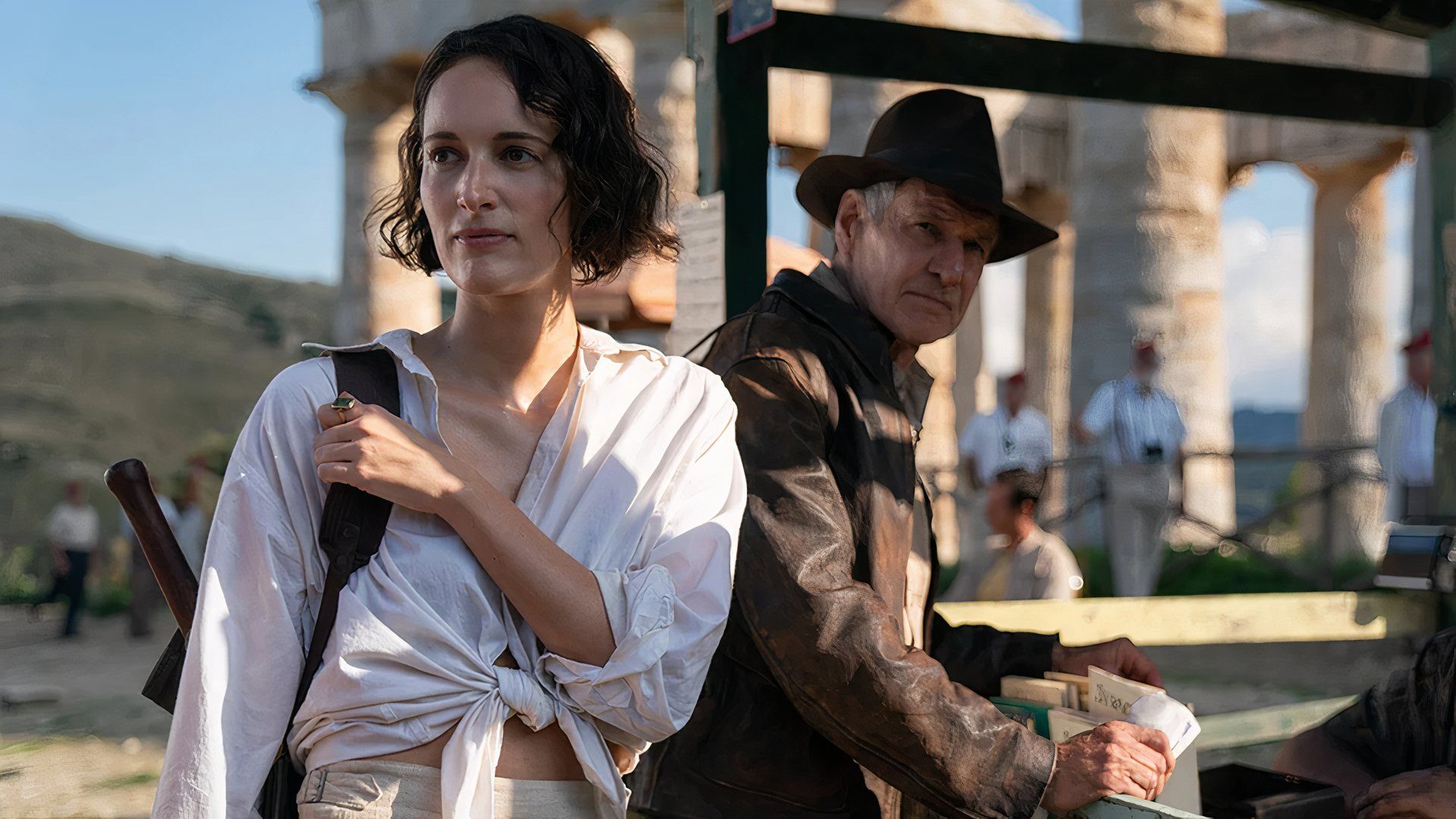

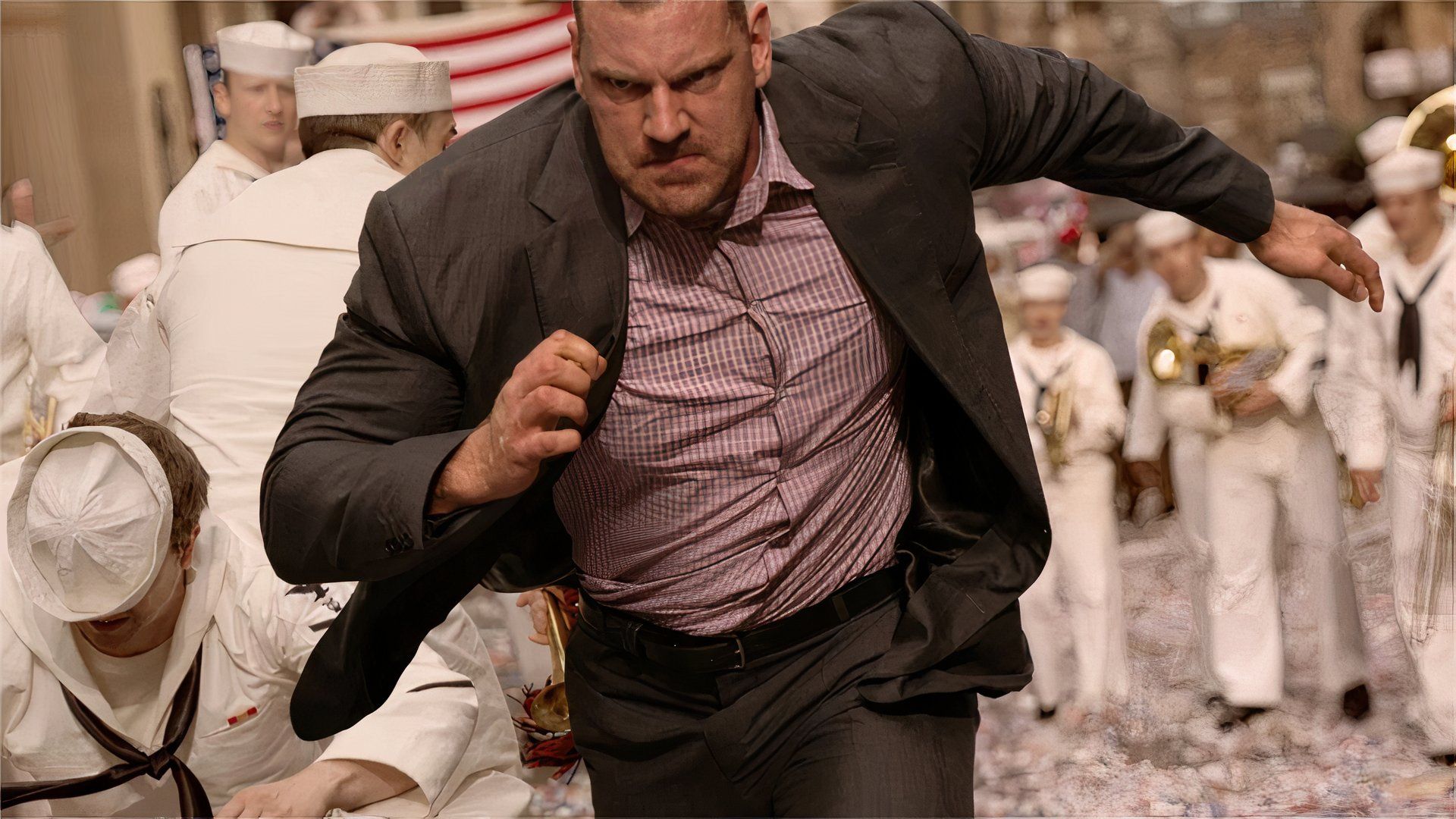
Ford should be commended for sticking by Dial of Destiny despite the criticism, but as he’s done a couple of these legacy appearances now, it has diluted his career slightly. He said that he wants to keep trying new things, which is great, but like a lot of actors of his level, his roles have been separated by his earlier work and his later work that you just kind of look past. We don’t have the beauty of hindsight on something like Dial of Destiny yet, and its reception could change in later years, but Indiana Jones isn’t immune to the changing times, even if Hollywood is desperate to plant him in a modern movie-making context to rinse nostalgia.
To restate, Harrison Ford is Harrison Ford, and he hasn’t exactly been damaged by the poor reaction to Indiana Jones and the Dial of Destiny. The character will similarly live on, but Indy hasn’t escaped the curse of the legacy sequel either. For a disarmingly delicate tonal balance that the first three achieve in different ways, Dial of Destiny is plagued by modern forms of directing and the need to tie everything up in a neat bow.
In a departure from the trilogy’s focus on adventure, Indiana Jones and the Dial of Destiny seems to delve into themes of regret, as it appears less centered around Indy’s character. Despite his ability to withstand punishment, each blow in this film serves as a reminder of the questionable necessity of these adventures. You can now stream Indiana Jones and the Dial of Destiny on Disney+.
Read More
- Gold Rate Forecast
- 10 Most Anticipated Anime of 2025
- Grimguard Tactics tier list – Ranking the main classes
- USD MXN PREDICTION
- Castle Duels tier list – Best Legendary and Epic cards
- PUBG Mobile heads back to Riyadh for EWC 2025
- Silver Rate Forecast
- Brent Oil Forecast
- USD CNY PREDICTION
- How to Watch 2025 NBA Draft Live Online Without Cable
2025-03-16 22:40